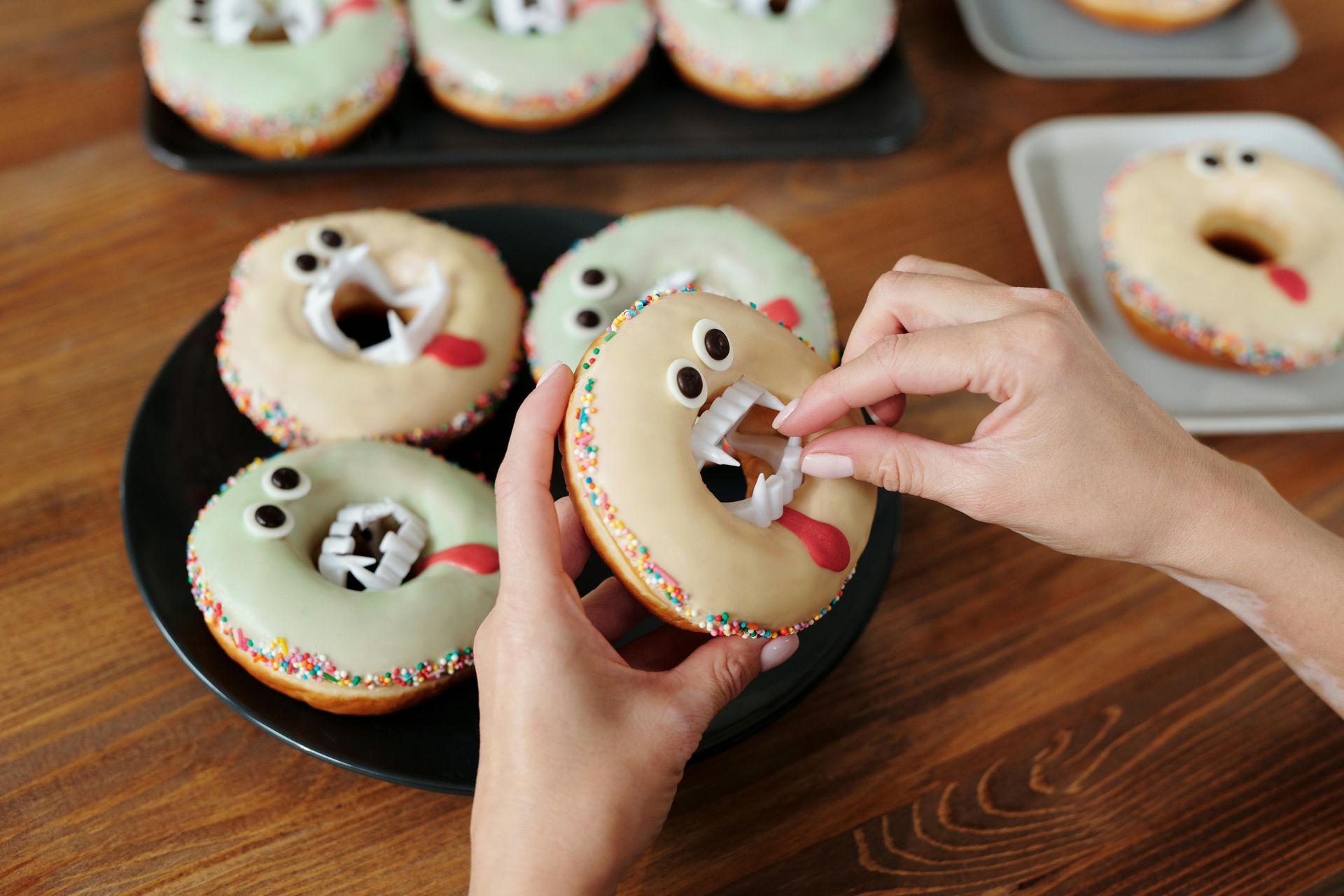The Importance of Messy Play in Feeding Development
Insight from a pediatric OT

As a pediatric occupational therapist (OT) specializing in feeding development, I have witnessed firsthand the profound impact that messy play can have on a child's ability to explore, engage, and succeed in feeding experiences. In this comprehensive blog post, I will delve into the significance of messy play in feeding development, exploring the underlying principles, benefits, and practical strategies for incorporating messy play into children's daily routines.
Understanding Messy Play: A Gateway to Sensory Exploration
Messy play involves hands-on activities that stimulate the senses and encourage children to explore different textures, temperatures, and consistencies. From finger painting with pudding to squishing playdough between their fingers, messy play provides valuable sensory experiences that lay the foundation for successful feeding development. Here's why messy play matters:
1. Sensory Integration: Messy play helps children integrate sensory information from their environment, improving their ability to tolerate and respond appropriately to different textures and sensations encountered during eating.
2. Motor Skill Development: Engaging in messy play supports the development of fine motor skills, such as grasping, pinching, and manipulating objects, which are essential for self-feeding and utensil use.
3. Desensitization: Exposure to diverse sensory experiences through messy play can desensitize children to aversive textures and tastes, reducing feeding aversions and selective eating behaviors.
4. Exploration and Curiosity: Messy play fosters a sense of curiosity and exploration around food, encouraging children to interact with new foods and expand their culinary repertoire.
The Intersection of Messy Play and Feeding Development
Feeding development encompasses a range of skills that contribute to successful eating and drinking experiences. Messy play serves as a powerful tool for enhancing these feeding-related skills:
1. Oral-Motor Skills: Activities like blowing bubbles in yogurt or sucking pureed foods through a straw strengthen oral-motor muscles and improve coordination for chewing, swallowing, and speech production.
2. Sensory Processing: Messy play exposes children to varied textures and tastes, supporting the development of sensory processing abilities crucial for accepting and enjoying a diverse range of foods.
3. Self-Regulation: Engaging in messy play helps children learn to regulate their responses to sensory stimuli, reducing mealtime anxiety and promoting a positive feeding environment.
4. Mealtime Participation: By participating in meal preparation activities involving messy play, children feel empowered and motivated to engage in family meals, fostering social interaction and mealtime enjoyment.
Practical Strategies for Incorporating Messy Play into Daily Routines
Here are some actionable tips and strategies for integrating messy play into children's daily routines to promote feeding development:
1. Texture Exploration: Offer a variety of textures for messy play, such as cooked pasta, mashed potatoes, and yogurt, allowing children to touch, squeeze, and explore with their hands.
2. Food Art and Play: Use food items like fruits, vegetables, and bread to create edible artwork, encouraging children to experiment with food presentation and creativity.
3. Sensory Bins: Create sensory bins filled with rice, beans, or lentils for tactile exploration, hiding small toys or utensils to enhance engagement and fine motor skills.
4. Cooking Together: Involve children in age-appropriate cooking tasks, such as mixing ingredients or kneading dough, to build confidence and familiarity with food preparation.
5. Outdoor Messy Play: Take messy play outdoors for added sensory stimulation, incorporating natural elements like sand, mud, and water into sensory activities.
Embracing Messy Play: Empowering Children and Families
In conclusion, messy play is a powerful tool for promoting feeding development and enhancing children's overall sensory and motor skills. As a pediatric OT, I encourage families and caregivers to embrace messy play as a fun and effective way to support children's exploration of food and feeding experiences.
If you have concerns about your child's feeding development or sensory processing abilities, consider consulting with a pediatric occupational therapist for personalized guidance and support. Together, we can empower children to develop positive relationships with food and thrive in their feeding journeys.
Thank you for joining me on this exploration of the importance of messy play in feeding development. Let's continue to celebrate the joy of messy exploration and nourish children's growth and development through playful learning experiences.
Stay messy, stay curious, and happy feeding! 🎨🍽️










